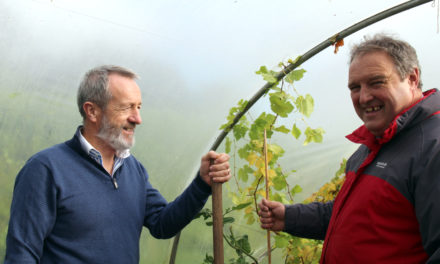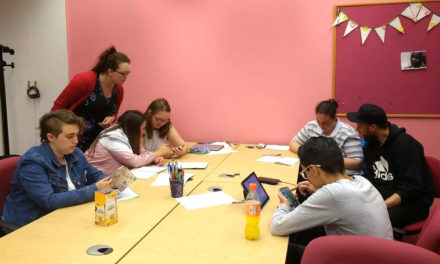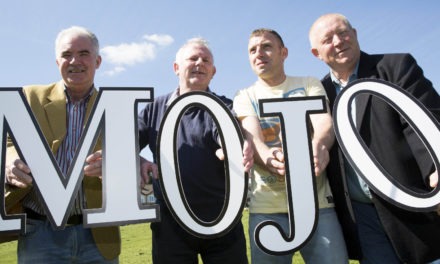On the eve of the UN and International Cooperative Alliance’s International Day of Cooperatives, we’re revisiting a spread from our June-July 2018 issue (Issue 60) drawing on cooperatives from around the world for examples of best practice.
Koreikyo: The co-operatives that are reshaping ageing in Japan
by Niamh Dunne
Koreikyo, or senior co-operatives, are a consumer and worker co-operative hybrid operated by and for Japan’s seniors. The co-op’s guiding mission is to help senior citizens remain active, independent and engaged.
All services are provided for and by seniors. Through the Koreikyo, frail seniors are cared for by more active seniors. The frail seniors receive the assistance they need to remain in their own homes for as long as possible, while employment (that pays) is provided for active seniors, keeps them active and adds meaning to their lives. Members can both provide and benefit from the co-op’s services.
Ms Yoshida (78), a member and service provider of Koreikyo explains, “Without a family of my own, this chance to work here and rely on Koreikyo means a very great deal to me. I’m sure I’ll need it even more in the future, so I’m really grateful that it’s here.”
The co-op’s core services include nursing home assistance and a home helper service. However, the social aspect is just as important for Koreikyo members. Different activities and events are organised by its members, providing opportunities to socialise and remain active.
Member and service user Uchida Hirosh (89) says, “My wife and I became members because we like the personal touch. It’s so important for people to help each other and do things together. This is really the principle behind it all.”
Members buy a book of tickets and exchange these tickets as payment for services. The service providers are also members and redeem these tickets as payment through the co-op or use the tickets for services themselves.
With low fertility rates and high life expectancy, Japan is facing the world’s worst ageing crisis. It is predicted that 40% of the population will be over 65 by 2040. Mounting social and economic pressures are changing the way the elderly are cared for in Japan. Koreikyo are emerging as an innovative solution to many of the problems ageing presents.
For more information read Bob Marshall’s paper on the Japanese co-operatives movement.
Community pub an answer to social isolation in West Cork
by Joseph Marken
An Irish town without a pub? Who’d believe it…
And yet that’s the situation facing residents of the west Cork parish of Barryroe. Their local, the Grange Tavern, closed in 2017 due to lack of business, and the Barryroe GAA club – unlike most GAA clubs – does not have a bar attached.
The closing of a local bar may not sound like a serious issue, but it will most likely worse the impact of social isolation that can be felt in Barryroe and many other rural communities.
But there may be a solution: co-operatives.
According to Kathryn Sharpe, secretary of the co-operative behind the Dog Inn pub in Belthorn, Lancashire, the re-opening of the Dog Inn has helped to regenerate the village of Belthorn, which has a similar population to Barryroe.
Kathryn is also the local community nurse, and she sees how having a community pub is of benefit in “helping ensure the health and welfare of the local population”. The Dog Inn has become an integral part of village life, and has grown to incorporate a restaurant, shop, and community rooms and gardens, among other facilities.
Replicating the success of the Dog Inn could be an easy task in Barryroe. First, however, the community will need to decide if they need or want a pub, and then whether or not they want to go down the co-operative route. The community is well-placed to do so, as it already has a successful farmer-owned co-op.
Belthorn has shown how this can be done; how a community can be saved. All that is now required is for interested people in Barryroe to get the ball rolling.
Editor’s note: Inishturk island 14km off the Mayo coast hosts yet another excellent example of a bar (legally a club) in community hands. Boasting – probably correctly – to be the pub with the best view in Europe, Inishturk Community Club has been in operation for over 20 years.
Organic Valley not mucking around when it comes to renewable energy
By Adrian Sheehy
In November of last year, figures released by the Environmental Protection Agency showed that Ireland had increased its greenhouse gas emissions by 3.5% in 2016, keeping the country on track to miss EU climate targets by 2020.
With fines estimated to be in the region of €445m for missing these targets, isn’t it high time that Ireland looked to new models for the way forwards?
The majority of Ireland’s increased emissions are generated by the use of fossil fuels in energy production. One US-based co-operative has found a different approach.
Organic Valley is a dairy co-operative founded in 1988 in the midwestern US state of Wisconsin, in reaction to the aggressive expansion of farming conglomerates. Its founding member were seven family farms hoping to remain viable as businesses while maintaining their philosophy of stewardship and sustainability.
The co-operative recently announced a set of partnerships with local renewable energy companies. Through these partnerships, Organic Valley intends to become 100% powered by renewable energy by 2019, making it the largest green energy organisation of its kind anywhere in the world.
In the process, it intends to generate 30 megawatts of energy for local communities and potentially raise renewable capacity by as much as 72% in Wisconsin alone.
The commitment of Organic Valley to protecting the environment is enhanced by the fact that the sites identified for solar panel and wind turbine installation will be planted, rather than covered in gravel or concrete. The installation sites will be filled with native flowering plants and grasses, and create bee and butterfly habitats that will support local biodiversity.
According to Organic Valley founder and ‘CEIEIO’ (CEO) George Siemon, these efforts to move the company towards a renewable and environmentally sustainable ethos are in keeping with the founding principles and values of the co-op.
Organic Valley has annual average sales of more than $1 billion and has 2,000 farm members internationally. Every member helps guide the co-operative, using a highly democratic governance structure supported by 22 individual committees.
Rising community sector stars Adrian Sheehy, Joseph Marken and Niamh Dunne were students of University College Cork’s Centre for Co-operative Studies at the time these articles were written. The articles reproduced here were converted by the students from assignments. Sheehy, Marken and Dunne graduated in 2018.
Interested in reading more about the state of Ireland’s community development sector? Check out our latest issue.




